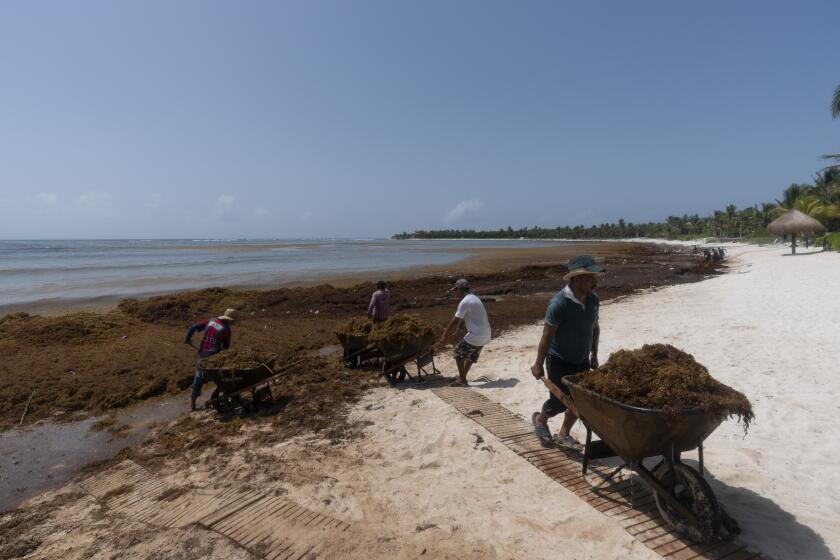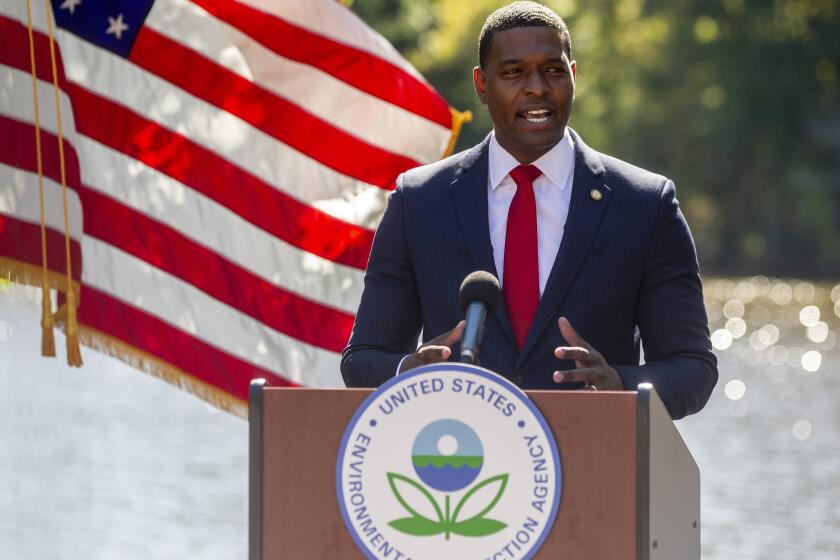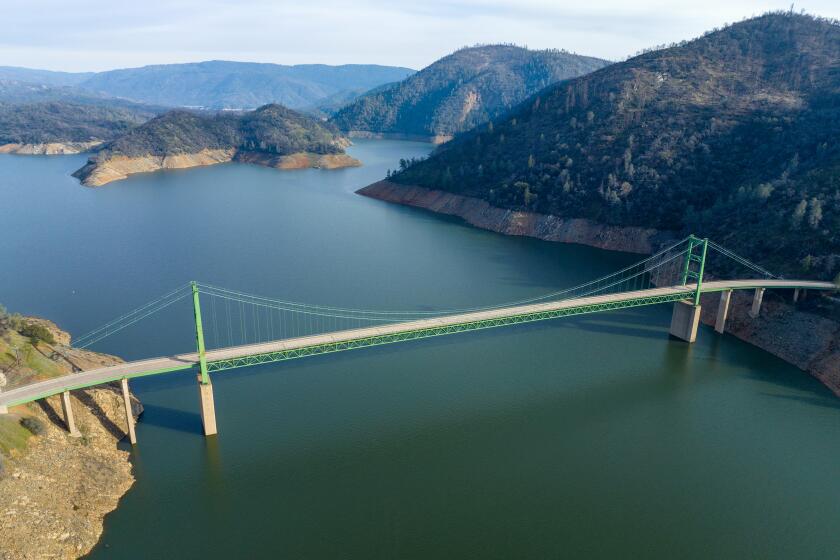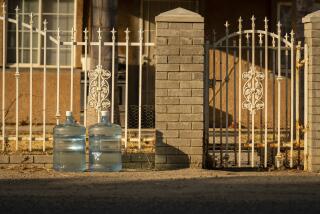Getting safe water a struggle for many of Venezuela’s poor
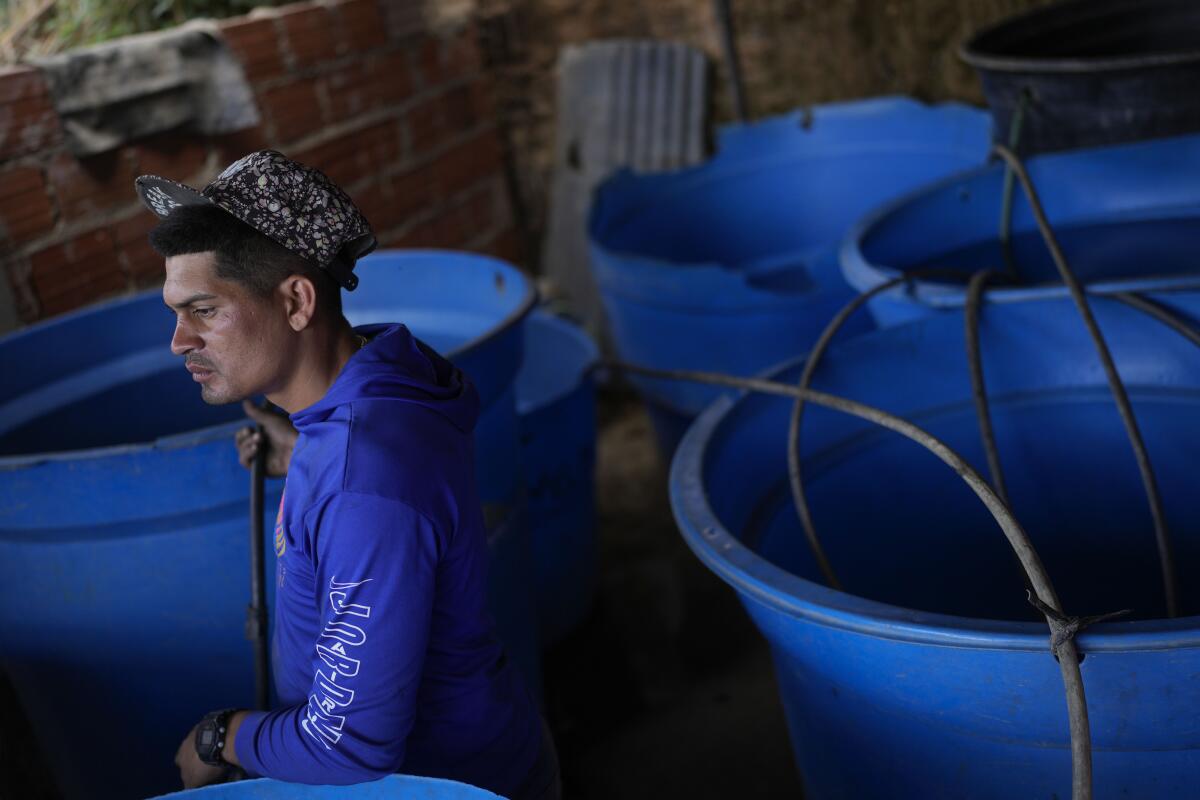
- Share via
CARACAS, Venezuela — Everyone knows Franklin Cáceres in his neighborhood on the far east side of Venezuela’s capital. A roadside vendor directs a visitor downhill, past a curve and to the left. A middle school student points to Cáceres’ home and business.
There, in a space flattened on the mountain by Cáceres, some meager cinderblock walls and a tin roof protect four 264-gallon blue plastic tanks in one corner. There is also a stove and a noisy flock of roosters.
“Fran! Fran!” neighbors yell as he walks up and down a winding, dusty road untangling and tugging a seemingly endless hose. The hose, which is more like a network of hoses that measure about a mile in length, has transformed their lives by bringing clean water to their poor district.
Water has long been a luxury in the sprawling low-income neighborhoods that surround Caracas. The problem preceded the socialist-led government of the late President Hugo Chavez. But like many other issues under the watch of his successor, Nicolas Maduro, the shortages have intensified in communities like Cáceres’ and expanded to other parts of Venezuela.
There’s a pesky problem in a wide stretch of the Atlantic Ocean that’s likely to wash up on some beaches later this year: Seaweed.
Compounding the problem is the decreasing value of wages after years of runaway inflation that has driven consumer prices ever higher amid Venezuela’s economic and political crisis. Those who buy water through formal or informal vendors must pay exorbitant fees in relation to wages. Many just can’t afford it.
At least half of Venezuela’s population lives in poverty.
The homes that cover a steep hill in this corner of Petare once had running water. When that stopped 13 or 14 years ago, the government would sporadically send a tanker trailer. Then that stopped too. Next came the private dealers with tankers or smaller vehicles who these days sell 53 gallons for $2 — that’s two-fifths of the country’s monthly minimum wage.
No celebrations are planned in Petare for Wednesday’s World Water Day. But many will long praise Cáceres’ ingenuity.
“He is famous,” said a neighbor, Gregoria Morao.
Cáceres’ place is 0.4 miles uphill from the well of an abandoned quarry. For a time, he and his neighbors would walk to the well, fill all sorts of containers and carry them back up to their homes.
The EPA is proposing the first federal limits on harmful “forever chemicals” in drinking water, saying it could prevent thousands of illnesses.
As the need grew, both for water and an income source, Cáceres said, he saw a business opportunity and a way to help his neighbors.
With both his own and borrowed money — and a water pump donated by the local government — he connected a series of hoses until he reached the well and began feeding the tanks at his home. He then connected more hoses until they were long enough to reach his neighbors’ tanks.
“I see it as a service to the community,” Cáceres said.
His listed price is $1.50 for 53 gallons, but he accepts whatever his neighbors can pay, even taking a cold or burned arepa. Occasionally, he also gives water for free to some families.
“This gives people peace of mind,” he said.
Only about 27% of Venezuelans whose homes have water pipes have daily, round-the-clock service, according to a December survey of 7,683 people by the nonprofit group Venezuelan Observatory of Public Services. Of those surveyed 9.4% reported having service just once a month, while 5% never get water.
Mandatory water restrictions are being lifted for nearly 7 million people across Southern California following winter storms.
The infrastructure failures are such that part of the international humanitarian assistance provided in Venezuela to ease its protracted crisis is specifically designated for potable water projects.
The complex political, social and economic crisis has driven more than 7 million Venezuelans to migrate and created a hellscape of inequality for those who remain in the country.
At his current rate, Cáceres’ customers pay $7.50 for a cubic meter of water. In a middle-income neighborhood in Caracas, an apartment building can pay 0.04 cents for the same amount.
Morao, 66, and five other people live off her son’s $180 monthly income from a kitchen helper job in a sushi restaurant. She said they typically need their 370-gallon plastic tank filled up once a week.
She remembers when water flowed through her sink faucet and all the promises politicians have made to restore service. She laughs at that prospect.
“Where is the water? And this year, they are also going to promise us water, they just haven’t come yet,” she said. “Why would we be hopeful? That’s a lie.”
More to Read
Sign up for Essential California
The most important California stories and recommendations in your inbox every morning.
You may occasionally receive promotional content from the Los Angeles Times.
